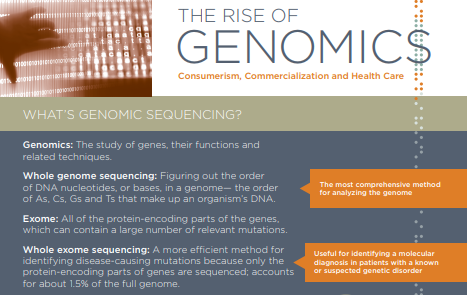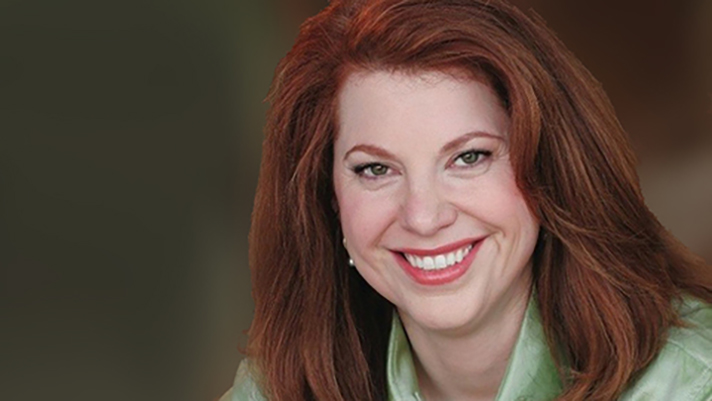Connected Health
What are the issues that will make up the agenda over the next few years?
Join our webinar to hear from research and provider experts in the trenches of health technology deployment to aging populations. Learn about profiles of success and reluctance. Take advantage of the opportunity to share your challenges and consider solutions.
SPONSORED
Technology’s impact on healthcare experiences – Join Philips live as it announces the latest Future…
Join Philips Chief Medical Officer Jan Kimpen in this webinar to discuss the latest edition of Philips’ global research project, the Future Health Index. This year’s Future Health Index researched the experiences of both patient and healthcare professional experiences of health systems, across 15 countries, through the lens of the quadruple aim and shows how digital health technology is moving us to a new era of continuous transformation.
SPONSORED
HIMSS Media, in partnership with Hyland, recently conducted a joint survey among U.S. hospitals and health systems to better understand the state of connected care and interoperability in healthcare. In this webinar, Sandra Lillie, Director of Healthcare Sales at Hyland and Janet King, Senior Director of Market Insights for HIMSS Media, will share prescriptive insights from this research to help healthcare providers keep pace with evolving consumer expectations and advance more integrated care delivery models.
SPONSORED
Connected Health
How to move from being "data aware" to data-driven, moving beyond data gathering, to intelligent insight, to action.
Connected Health
Delve into the definitions and statistics describing one of the most impactful trends in medicine, including a more efficient method for identifying disease-causing mutations. Also embedded is an invitation to register for a related upcoming webinar.
SPONSORED
Mobile Health IT
Hospitals around the globe are investing in mobile computers and it’s redefining the way healthcare is delivered. Zebra commissioned three global research studies focused on nurse managers, IT executives and recently hospitalized patients to better understand the role of technology in acute care hospitals. The Future of Healthcare 2022 Hospital Vision Study report summarizes the key results of this analysis.
Connected Health
MGMA CEO Halee Fischer-Wright offers a healthy dose of skepticism about patient access to data, digital and remote health services and wearables. And then she cautions about the two things the industry must not forget to do.
Results of two polls published in the past week, from the Kaiser Family Foundation and Pew Research Center, demonstrate growing support for the Affordable Care Act, aka Obamacare.
The Kaiser Health Tracking Poll: Future Directions for the ACA and Medicaid was published February 23, 2017. The margins in February 2017 were 48 percent favorable, 42 percent unfavorable.
While the majority of Republicans continue to be solidly against the ACA, a larger share of voters who identify as Independent have shifted to a favorable position on Obamacare.
Furthermore, the KFF survey found that more than one-half of Americans overall say Medicaid is important for their families, with fewer Republicans saying so. Fifty-six percent of Americans said they had some connection to Medicaid, either currently or in the past.
The KFF survey was conducted February 13-19, 2017 by telephone among 1,160 U.S. adults ages 18 and older.
The Pew poll asked people if they approved or disapproved of the healthcare law passed by Barack Obama and Congress in 2010. The difference between pro- and con- in the Pew poll was wider than in the KFF survey, with 54 percent approving and 43 percent disapproving.
Among people who disapprove of the law, more want to see Republican Congressional leaders modify the law versus repealing it, now with 44 percent of Republicans seeking repeal and 42 percent looking for a “repair.”
There’s also a big difference in how younger Americans view the ACA compared with older people by a 2:1 ratio: 65 percent of younger adults approve of the law vs. 31 percent who disapprove. Support for Obamacare has also grown among Americans between 50 and 64 years of age.
Note that the divergence in positive/negative responses in both polls reversed in 2017, lines crossing in the opposite directions as the 2017 new year set in with the eventual confirmation of Secretary Tom Price to lead the Department of Health and Human Services, and the reality of prospects for an ACA repeal.
Finally, college graduates are more likely to support the Affordable Care Act than people with no college.
The Pew poll was conducted among 1,503 U.S. adults the week before the KFF study, February 7-12, 2017.
Health Populi’s Hot Points: Media outlets repeated the Democratic Party leadership’s mantra that “Republicans could make America sick again.” The UK’s Financial Times reported that, “Trump warns party on speed of health reform as lawmakers push alternative visions.” The column pointed out: “The day after Republicans took a first step towards repealing the Obama reforms, the president and Mr. Pence separately met lawmakers who are pushing alternative visions for improving healthcare while trying to insulate themselves from future public ire.”
The issue “spans household budgets, government spending and the profitability of the health industry,” the FT called out.
Indeed: the U.S. healthcare economy is $1 in $5 of the national economy: As such, the healthcare economy is the national economy.
At last week’s annual HIMSS conference, which attracted more than 40,000 healthcare information technology users and developers to Orlando, there was a growing number of vendors focused on patient payment systems – to deliver greater transparency, medical banking, and so-called “revenue cycle management.”
Healthcare providers, hospitals and physicians alike, are confronted by patients who are now payers: paying first-dollar coverage out-of-pocket whether in high deductible health plans, working through health savings accounts, or paying @retail without insurance or under-insured. These patients are Democrats, Independents, and Republicans alike, all seeing $1 in every $5 bill in their pocketbook going to healthcare costs.
Over one-half of respondents to the February 2017 KFF poll reported some connection Medicaid: a fact that Congress, President Trump, and Secretary Price should note.
I’ll put a real-life, fine point on this: I spent last Friday morning, February 24, with the Kansas Hospital Association brainstorming the growing role of patients as consumers in U.S. healthcare. Kansas Governor Brownback had not expanded Medicaid to-date, and neither had the State House been keen to do so. The night before my speech to the Association, the State House had voted in favor of expanding Medicaid. That issue will now be considered by the Kansas State Senate.
This is a state that has been very conservative about Medicaid expansion. Now, in February 2017, we see a sign that state representatives seek a change. Kansas could be a bellwether. Watch this space: “ad astra per aspera” means, “through hardship to the stars.” There are few greater hardships than a very sick person facing a choice between paying for healthcare services and life-saving drugs, and paying for food, shelter, and heat in the winter.
Accountable Care
Eight in 10 U.S. patients would welcome some aspect of virtual healthcare, but only 1 in 5 providers is meeting that need.











